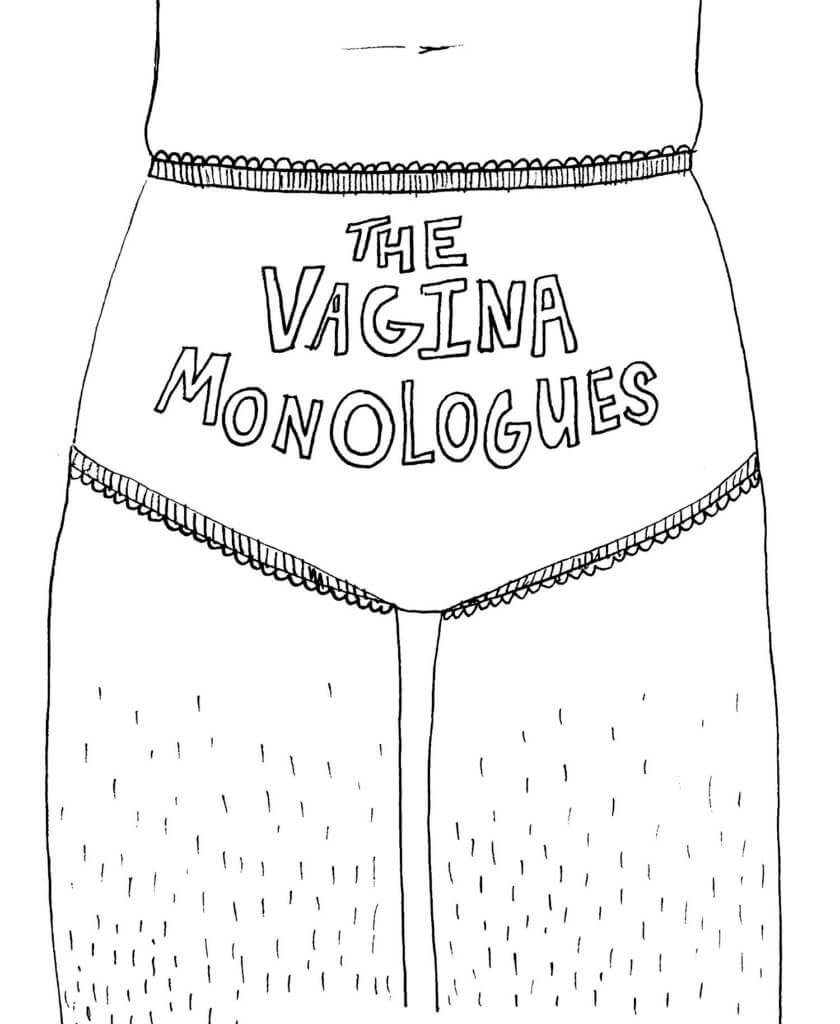Leaning into discomfort often results in considerable personal growth

The first time I heard about The Vagina Monologues was three years ago when a friend brought me to the show. All she told me was that it was going to make me uncomfortable, but “good” uncomfortable. What followed was a transformative experience. Fellow students performed monologues that tackled issues ranging from pubic hair, to violence against trans women, to experiences of sexual assault. The show made me feel; it made me uncomfortable at times. By the end of the show, I decided that I wanted to take part in The Vagina Monologues.
The Vagina Monologues was written in the 1990s by Eve Ensler. The play consists of a series of monologues that have been developed as a result of a series of interviews with over 200 women. The play tackles issues of female sexuality in a point-blank fashion. Despite being written over 20 years ago, it remains relevant today and seeing the play is an important experience.
Now in my third year of university, I performed in this year’s production of The Vagina Monologues. I’m a relatively private person and talking about the issues addressed in the show in front of an audience pushed me outside of my comfort zone. It was an important experience for me and I can confidently say that I grew from the experience.
In addition to it being a really cool experience for the 10 cast members involved, seeing the show is an important experience in itself. Even a mention of the show can make people uncomfortable at times. I could see the flash of uneasiness in people’s eyes when I told them that I was performing in The Vagina Monologues. Despite some of my friends’ hesitant acceptance, they all really enjoyed the show. Most of the people I talked to told me that the show made them uncomfortable at times, especially my male friends.
The monologues focus on topics that are considered taboo in public, and sometimes even in private, settings. One of my favourite monologues recounts the experience of a women who had sex with a man who loved to look at vaginas. It’s hilarious. The collision of self-esteem issues with a positive (yet odd) sexual experience makes for an entertaining and uncomfortable monologue. Addressing such private experiences in public makes us uncomfortable because it requires us to address issues and topics that we’d often prefer to go undiscussed, but it’s important to be uncomfortable sometimes. Pushing yourself outside your comfort zone is where you grow. It’s where you learn. Be uncomfortable. Lean into it. Embrace it. I’m not saying that you should live there, just that it is important to take the opportunity to get out a bit.
Some of the monologues that address experiences of sexual assault lead to uncomfortable silences with the audience, who were unsure of whether or not to clap. One of my male friends told me that he gained a better understanding of the effects of sexual assault by seeing the play. He explained that several of the monologues gave him an increased awareness of how such a traumatic event bleeds into all areas of one’s life. He said that, although he could exercise empathy for victims of sexual assault, listening to the monologues allowed him to gain a better, more well-rounded insight on the effects of such trauma.
This experience pushed me outside of my comfort zone. If you came to see the show, I hope that you gained at least a fraction of the insight that Eve Ensler’s play gave me. If you have not yet seen the show, I highly encourage you go see it the next time the opportunity arises. I hope that it makes you uncomfortable in the best possible way. I hope that it pushes you outside of your comfort zone – and I hope that you grow from it.





